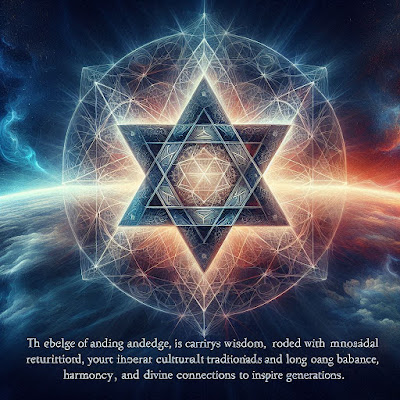Strengthening Ti and Te Through Islamic Practices and Readings
How Engaging with the Quran, Hadith, and the Lives of the Fourteen Masoumin (AS) Activates Logical and Systematic Thinking
When it comes to self-development through faith, Islam offers profound tools to engage both Ti (Introverted Thinking) and Te (Extraverted Thinking) functions. These functions govern how we analyze, structure, and apply knowledge—both internally and externally. Engaging with Islamic readings and practices can help sharpen logical reasoning, deepen understanding, and enhance the organization of thoughts and actions.
Here are some Islamic activities and readings that specifically activate Ti and Te, paving the way for both spiritual and cognitive growth.
Ti-Activating Islamic Activities and Readings
1. Reflective Quranic Tafsir (Exegesis):
Diving into Quranic tafsir is one of the most profound ways to activate Ti. The process of analyzing the linguistic, contextual, and interpretive layers of Quranic verses encourages internal logical reasoning. Understanding the meanings behind Quranic commands or exploring metaphysical concepts trains the mind to think deeply and systematically.
- Example: Reading works by scholars like Allama Tabatabai (Tafsir al-Mizan) engages introspection and logical exploration.
2. Analyzing Hadith Collections:
Studying hadith involves critical thinking, as it requires evaluating authenticity (sanad) and understanding context (matn). The process of connecting individual hadiths to larger principles of Islamic jurisprudence or ethics challenges the Ti function to synthesize and internalize logical frameworks.
- Example: The study of collections like Nahjul Balagha by Imam Ali (AS) provides moral and intellectual guidance that strengthens introspective reasoning.
3. Reading About the Lives of the Fourteen Masoumin (AS):
Exploring the biographies of the Fourteen Masoumin (AS) activates Ti by encouraging personal reflection on their decisions, logic, and moral principles. Understanding their reasoning and actions fosters a deeper, introspective engagement with Islamic ethics and philosophy.
- Example: Studying books like The Life of Imam Ali (AS) by George Jordac helps internalize the logical frameworks of these great personalities.
4. Islamic Philosophy and Theology (Kalam):
Philosophical works in Islamic tradition engage Ti by presenting abstract, logical arguments about existence, morality, and divine principles. These readings are ideal for individuals seeking to explore the rational dimensions of faith.
- Example: Reading foundational texts by scholars like Al-Farabi or Mulla Sadra enriches logical introspection.
Te-Activating Islamic Activities and Readings
1. Practical Application of Fiqh (Islamic Jurisprudence):
Studying and applying the principles of fiqh involves external organization and decision-making, making it a Te-focused activity. The structured nature of Islamic rulings helps train the mind to think systematically and make practical decisions rooted in logic.
- Example: Reading Al-Risalah tul Huqquq by Imam Zaynul Abideen (AS) teaches the duties from which all Islamic law is derived.
2. Memorizing and Structuring Quranic Ayahs:
Memorizing Quranic verses and organizing them by themes or rulings engages Te, as it requires external structuring and logical categorization. This activity fosters efficiency in thought and action while encouraging a deeper connection with the Quran.
- Example: Using thematic tafsir resources, like those of Ayatollah Makarim Shirazi, helps in organizing Quranic wisdom into actionable categories.
3. Strategic Analysis of Historical Islamic Events:
Studying key events like the Battle of Karbala through a strategic lens trains Te by emphasizing cause-and-effect relationships and logical application. Analyzing the decisions made by the Masoumin (AS) in response to challenges provides models of efficient leadership and problem-solving.
- Example: Books like The Tragedy of Karbala encourage understanding of strategy and leadership in the context of faith.
4. Leadership Lessons from the Fourteen Masoumin (AS):
The external systems of governance, justice, and organization demonstrated by figures like Imam Ali (AS) and Imam Hassan (AS) are perfect for activating Te. By studying their approaches to leadership, we learn practical frameworks for problem-solving, management, and decision-making.
- Example: Reading The Peak of Eloquence (Nahjul Balagha) for leadership insights and decision-making strategies.
Why These Activities Lead to Neuroplasticity
Islamic practices and readings provide structured engagement that naturally leads to neuroplasticity. By repeatedly engaging in reflective thinking (Ti) and practical application (Te), you train your brain to adopt new patterns of thought and action. Regular interaction with these activities creates new neural pathways, strengthening both introspective logic and external problem-solving skills.
Faith-based practices are not just spiritual but also intellectual exercises that prepare the mind for personal growth and lasting transformation.
Final Thoughts
Integrating Islamic readings and practices into your daily life can significantly enhance your Ti and Te functions. These activities provide both spiritual fulfillment and cognitive benefits, encouraging a balanced approach to faith and intellect. Whether you're reflecting on Quranic verses, studying hadith, or analyzing historical events, these practices offer a pathway to deeper understanding and practical application.
Image Description:
An image of an open Quran placed on a wooden rehal (bookstand), surrounded by books on tafsir, hadith, and the lives of the Fourteen Masoumin (AS). The background includes a subtle glow, symbolizing enlightenment and the merging of faith and intellect.




Comments
Post a Comment